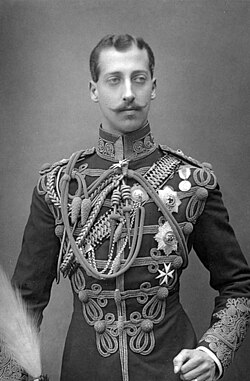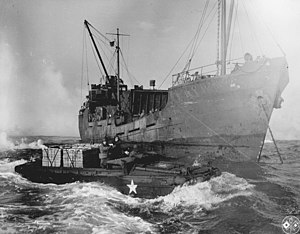Portal:History
The History Portal

Herodotus (c. 484 BC – c. 425 BC) is often
considered the "father of history"
History is the systematic study of the past, focusing primarily on the human past. As an academic discipline, it analyzes and interprets evidence to construct narratives about what happened and explain why it happened. Some theorists categorize history as a social science, while others see it as part of the humanities or consider it a hybrid discipline. Similar debates surround the purpose of history—for example, whether its main aim is theoretical, to uncover the truth, or practical, to learn lessons from the past. In a more general sense, the term history refers not to an academic field but to the past itself, times in the past, or to individual texts about the past.
Historical research relies on primary and secondary sources to reconstruct past events and validate interpretations. Source criticism is used to evaluate these sources, assessing their authenticity, content, and reliability. Historians integrate the perspectives of several individual sources to develop a coherent narrative. Different schools of thought, such as positivism, the Annales school, Marxism, and postmodernism, have distinct methodological approaches.
History is a broad discipline encompassing many branches. Some focus on specific time periods, such as ancient history, while others concentrate on particular geographic regions, such as the history of Africa. Thematic categorizations include political history, military history, social history, and economic history. Branches associated with specific research methods and sources include quantitative history, comparative history, and oral history.
History emerged as a field of inquiry in antiquity to replace myth-infused narratives, with influential early traditions originating in Greece, China, and later in the Islamic world. Historical writing evolved throughout the ages and became increasingly professional, particularly during the 19th century, when a rigorous methodology and various academic institutions were established. History is related to many fields, including historiography, philosophy, education, and politics. (Full article...)
Featured picture
Did you know (auto generated)

- ... that an exhibition hall for the 1939 New York World's Fair later hosted athletic events at a historically Black university in Virginia?
- ... that the government of Victoria, Australia, has a program to remove 110 level crossings by 2030, the fastest rate in the state's history?
- ... that Samba Yonga and Mulenga Kapwepwe founded the Women's History Museum of Zambia to counter a colonialist perspective on women's history?
- ... that alongside a 7th-century BC Phoenician shipwreck, two additional wrecks from various historical periods were unearthed in Bajo de la Campana, situated off the coast of Cartagena, Spain?
- ... that the Al Qarara Cultural Museum, housed in a former grain silo, contained 6000 years of history?
- ... that Art Rooney Jr. presided over what one Pro Football Hall of Fame selector described as "the best drafting run in NFL history"?
John Linton Treloar, OBE (10 December 1894 – 28 January 1952), commonly referred to during his life as J. L. Treloar, was an Australian archivist and the second director of the Australian War Memorial (AWM). During World War I he served in several staff roles and later headed the First Australian Imperial Force's (AIF) record-keeping unit. From 1920 Treloar played an important role in establishing the AWM as its director. He headed an Australian Government department during the first years of World War II, and spent the remainder of the war in charge of the Australian military's history section. Treloar returned to the AWM in 1946, and continued as its director until his death.
Treloar's career was focussed on the Australian military and its history. Prior to World War I he worked as a clerk in the Department of Defence and, after volunteering for the AIF in 1914, formed part of the Australian Army officer Brudenell White's staff for most of the war's first years. He was appointed commander of the Australian War Records Section (AWRS) in 1917. In this position, he improved the AIF's records and collected a large number of artefacts for later display in Australia. Treloar was appointed the director of what eventually became the AWM in 1920, and was a key figure in establishing the Memorial and raising funds for its permanent building in Canberra. He left the AWM at the outbreak of World War II to lead the Australian Government's Department of Information, but was effectively sidelined for much of 1940. In early 1941 he was appointed to command the Australian military's Military History and Information Section with similar responsibilities to those he had held during World War I. He attempted to intervene in the management of the AWM during his absence, however, to the increasing frustration of its acting director. Treloar worked intensely in all his roles and suffered periods of ill-health as a result. Following the war, he returned to the Memorial in 1946 but his performance deteriorated over time, possibly due to exhaustion. He died in January 1952. (Full article...)
On this day
- 1271 – Crusades: The Knights Hospitaller surrendered the Krak des Chevaliers, a castle in present-day Syria, to the army of the Mamluk sultan Baybars.
- 1904 – France and the United Kingdom signed the Entente Cordiale, agreeing to a peaceful coexistence after centuries of intermittent conflict.
- 1911 – American cartoonist Winsor McCay released the silent short film Little Nemo (featured), one of the earliest animated films.
- 1933 – The Australian state of Western Australia voted to secede from the federation, but efforts to implement the result proved to be unsuccessful.
- 1973 – The Progress Party was founded in a movie theater in Oslo, Norway.
- Caracalla (d. 217)
- Mary Dee (b. 1912)
- Christof May (b. 1973)
- TBJZL (b. 1993)
Selected quote
What transforms this world is — knowledge. Do you see what I mean? Nothing else can change anything in this world.
— Yukio Mishima, Japanese author
Related portals
More Did you know...
- ... that in 1898, the United States government annexed the Kingdom of Hawaii despite protestation from Queen Liliuokalani (pictured)?
- ... that Jean Thurel was a soldier in the French Régiment de Touraine for more than 75 years?
- ... that the severed head of Julia Martha Thomas — murdered, boiled and dismembered by her maid in 1879 — was found next door to Sir David Attenborough's house in 2010?
- ... that the 18th-century Indian automaton Tipu's Tiger shows a near life-size European being mauled by a tiger, and emits wails and grunts as well as containing a pipe organ?
- ... that Svið, a traditional Icelandic dish, consists of a sheep's head that has been cut in half, singed, and boiled with the brain removed?
- ... that, despite overseeing the construction of the crematoria and gas chambers at Auschwitz, what specifically shocked SS-Obersturmführer Robert Mulka at the camp was his colleagues' dress sense?
- ... that Tsar Alexander II of Russia had a special crystal bottle of Roederer champagne made for the Three Emperors Dinner in 1867 so that he could admire the bubbles?
- ... that the Gudea cylinders are the longest literary composition ever found in the Sumerian language?
Topics
Categories

History • By period • By region • By topic • By ethnic group • Historiography • Archaeology • Books • Maps • Images • Magazines • Organizations • Fictional • Museums • Pseudohistory • Stubs • Timelines • Chronology • People • Wikipedia historians
WikiProjects
![]() WikiProject History •
Ancient Near East • Australian History • Classical Greece and Rome • Dacia • Former countries • History of Canada • Chinese history • European history • Heraldry and vexillology • Indian history • Jewish history • Medieval Scotland • Mesoamerica • Military history • Middle Ages • History of Science
WikiProject History •
Ancient Near East • Australian History • Classical Greece and Rome • Dacia • Former countries • History of Canada • Chinese history • European history • Heraldry and vexillology • Indian history • Jewish history • Medieval Scotland • Mesoamerica • Military history • Middle Ages • History of Science
WikiProject Time • Days of the Year • Years
WikiProject Biography • Composers • Political figures • Saints • United States Presidents
Things you can do
 |
Here are some tasks awaiting attention:
|
Associated Wikimedia
The following Wikimedia Foundation sister projects provide more on this subject:
-
Commons
Free media repository -
Wikibooks
Free textbooks and manuals -
Wikidata
Free knowledge base -
Wikinews
Free-content news -
Wikiquote
Collection of quotations -
Wikisource
Free-content library -
Wikiversity
Free learning tools -
Wiktionary
Dictionary and thesaurus






















































